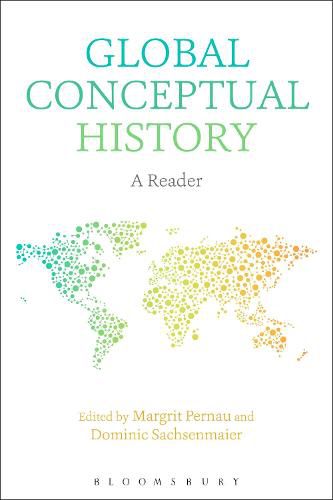Readings Newsletter
Become a Readings Member to make your shopping experience even easier.
Sign in or sign up for free!
You’re not far away from qualifying for FREE standard shipping within Australia
You’ve qualified for FREE standard shipping within Australia
The cart is loading…






The influential readings contained in this volume combine conceptual history - the history of words and languages - and global history, showing clearly how the two disciplines can benefit from a combined approach. The readings familiarize the reader with conceptual history and its relationship with global history, looking at transfers between nations and languages as well as the ways in which world-views are created and transported through language.
Part One: Classical Texts presents the three foundational texts for conceptual history, giving the reader a grasp of the origins of the discipline. Part Two: Challenges focuses on critiques of the approach and explores their ongoing relevance today. Part Three: Translations of Concepts provides examples of conceptual history in practice, via case studies of historical research with a global scope. Finally, the book’s concluding essay examines the current state and the future potential of conceptual history.
This original introduction provides the students of conceptual, global and intellectual history with a firm grasp of the past trajectories of conceptual history as well as its more recent global and transnational tendencies, and the promises and challenges of writing global history.
$9.00 standard shipping within Australia
FREE standard shipping within Australia for orders over $100.00
Express & International shipping calculated at checkout
The influential readings contained in this volume combine conceptual history - the history of words and languages - and global history, showing clearly how the two disciplines can benefit from a combined approach. The readings familiarize the reader with conceptual history and its relationship with global history, looking at transfers between nations and languages as well as the ways in which world-views are created and transported through language.
Part One: Classical Texts presents the three foundational texts for conceptual history, giving the reader a grasp of the origins of the discipline. Part Two: Challenges focuses on critiques of the approach and explores their ongoing relevance today. Part Three: Translations of Concepts provides examples of conceptual history in practice, via case studies of historical research with a global scope. Finally, the book’s concluding essay examines the current state and the future potential of conceptual history.
This original introduction provides the students of conceptual, global and intellectual history with a firm grasp of the past trajectories of conceptual history as well as its more recent global and transnational tendencies, and the promises and challenges of writing global history.